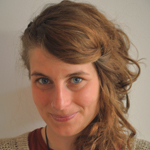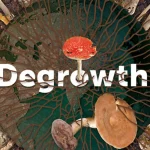Host Institute |
||
 |
Topic |
Cultivating flowers in a wastewaterscape: A feminist ethnography of agrarian transformations in Maharashtra, India. |
|
Supervisors |
Margreet Zwarteveen, |
|
| Secondment 1 |
Centre for Social Studies-University of Coimbra (CES-UC) | |
|
Mentor |
Stefania Barca |
|
| Secondment 2 |
Society for Promoting Participative Ecosystem Management | |
|
Mentor |
Seema Kulkarni |
|
| Fieldwork
|
India | |
|
Irene Leonardelli holds a MSc in Social Sciences from the University of Amsterdam and a bachelor in Cultural Anthropology from the University of Bologna. She is passionate about exploring the interaction between the global and the local, looking at how people resist, re-shape and adapt to social and environmental changes. She worked for two years for the IOM´s Global Migration Data Analysis contributing to several projects, including the “Migration, Environment and Climate Change: Evidence for Policy” (MECLEP) project and the Migration Governance Indicators. She also collaborated with NGOs conducting advocacy work and providing direct support to refugees and communities at risk of displacement both in Europe and in South America. |
||
Objectives of the research
This ESR focuses on initiatives of small farmers, water users, women’s and workers’ organisations to resist or reshape processes and effects of water re-allocations, dispossession and accumulation provoked by the intensification of agriculture and the entrance of agribusiness companies. It will use a grounded FPE analysis to explore the connections between changes in the environment (water) and trade (commercial farming) in Maharashtra, India. The analysis traces how re-allocations of water modify tenure, labour and consumption relations and identities, particularly examining caste, class and gender divisions and identities. It will map the new socio-material and cultural articulations and connections these processes of change entail between people, and between people, places and natures, also assessing their implications for modalities and scales of water governance.
Expected Results
The ESR will analyse water-trade connections, linking water-intensive forms of capitalist agriculture in Maharashtra with urbanising and international patterns of consumption in order to identify creative proposals for strengthening rural people’s water security and improving their opportunities to benefit from virtual water flows.
Progress update
Irene Leonardelli started her PhD at IHE Delft Institute for Water Education, Department of Water Governance, in September 2018. She just finished her first period of ethnographic fieldwork in Maharashtra, India, where she collaborated with the WEGO partner institution SOPPECOM. Unfortunately, her fieldwork had to be interrupted one month ahead of schedule due to COVID19. She is now working on her data analysis and writings, partly continuing her data collection through phone interviews. A beautiful and important moment during her fieldwork was the week spent with Wendy Harcourt, Enid Still, Seema Kulkarni (WEGO members) in Pune and Chennai, networking with local organizations and universities, thinking through and practicing together feminist political ecology.
Before leaving for her first period of fieldwork, in November 2019, Irene successfully defended her research proposal at IHE Delft. At IHE Delft, Irene has been following several classes on water governance and creative writing, actively engaging with both master students and other PhD fellows. She also attended many seminars and workshops organized at IHE Delft, eager to contribute to interdisciplinary discussions around water with a critical feminist perspective. The monthly meetings with other WEGO PhDs and professors based at other Dutch universities gave her the opportunity to share ideas and learn about feminist political ecology through the experience and work of others, feeling part of an incredibly inspiring and diverse network.
During her first year of PhD, from May to August 2019, Irene conducted her first secondment at SOPPECOM (Pune, India), collaborating on several action-research projects to support farmers, and particularly women farmers, in rural Maharashtra and conducting preliminary fieldwork for her research project. She also attended a two weeks course titled “Training and Facilitation in Hydrogeology to enhance civil society capabilities in watershed and groundwater management”, organized by a local NGO, ACWADAM, with whom she is also closely collaborating.
She presented her research at the RGS-IBG Annual International Conference in London in August 2019, at a panel titled “New and Emerging Research in Gender and Feminist Geographies”. In October 2019, she also attended the PhD course “Theories of agrarian transformations and modernization” at Stockholm University and Uppsala University, in Sweden.
At IHE Delft, she is also involved in several projects including “Transformations to Groundwater Sustainability” (T2GS), co-coordinated by her WEGO promotors, Margreet Zwarteveen and Jeltsje Kemerink – Seyoum. In the context of this project she participated in an international workshop held in Pune (India) in December 2018, with water professionals from India, Morocco, USA, Algeria, Peru, Chile, the Netherlands, United Kingdom and others. The second international workshop for this project, which was supposed to happen in March 2020 had to be postponed due to COVID19.
Irene conducted three and a half months of fieldwork in Maharashtra (India) from December 2019 until the end of March 2020. Unfortunately, she had to return to Europe one month before what she had planned, because of COVID-19. However, she was able to collect data, which she is now analyzing and will use to write two papers (to be submitted and published in 2021). She is also working on another paper with her supervisors and other colleagues on the impact of COVID-19 on small-holder famers in India, Algeria and Morocco. She has been in touch with her fieldwork site remotely. The WEGO-ITN partner institution SOPPECOM has supported her throughout her fieldwork and their collaboration continues also through this research activity on COVID-19.
Publications by Irene Leonardelli
Forthcoming:
Blogs by Irene Leonardelli

Degrowth and Feminist Political Ecology and Decoloniality: Reflections from the WEGO network

Reimagining, remembering, and reclaiming water: From extractivism to commoning

A pandemic of blindness: uneven experiences of rural communities under COVID-19 lockdown in India – Part II

A pandemic of blindness: uneven experiences of rural communities under COVID-19 lockdown in India – Part I

Notes from the field: Between drought and monsoon: the embodied hardship of seasonal work in Maharashtra’s sugar cane plantations
Website
https://www.troublingwaterscapes.com/

